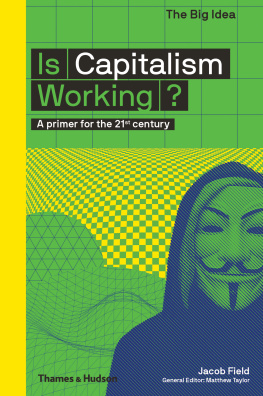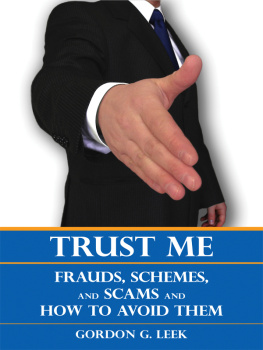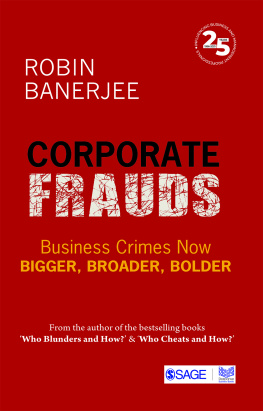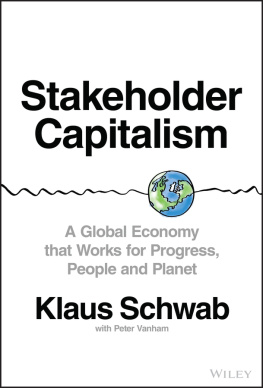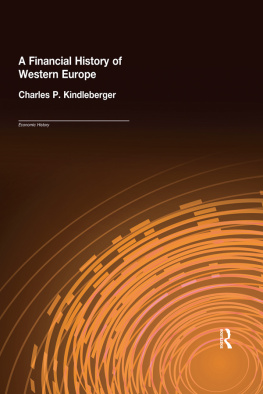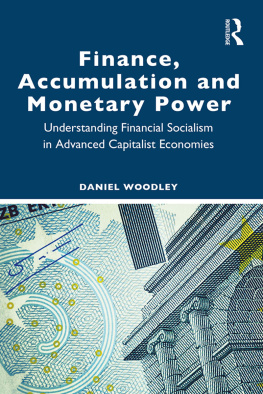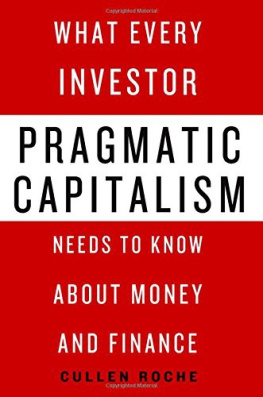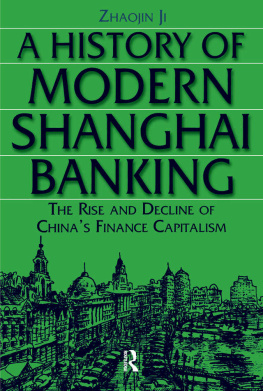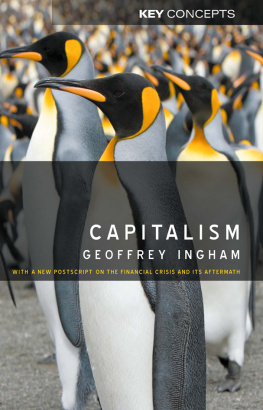Forging Capitalism
YALE SERIES IN ECONOMIC AND FINANCIAL HISTORY
Sponsored by the International Center for Finance, Yale School of Management
GENERAL EDITORS
Howard Bodenhorn
Clemson University, Department of Economics
William N. Goetzmann
Yale University, School of Management
K. Geert Rouwenhorst
Yale University, School of Management
Eugene N. White
Rutgers University, Department of Economics
Forging Capitalism
Rogues, Swindlers, Frauds, and the Rise of Modern Finance
IAN KLAUS

Published with assistance from the
Mary Cady Tew Memorial Fund.
Copyright 2014 by Ian Klaus.
All rights reserved.
This book may not be reproduced, in whole or in part, including illustrations, in any form (beyond that copying permitted by Sections 107 and 108 of the U.S. Copyright Law and except by reviewers for the public press), without written permission from the publishers.
Yale University Press books may be purchased in quantity for educational, business, or promotional use. For information, please e-mail sales.press@yale.edu (U.S. office) or sales@yaleup.co.uk (U.K. office).
Set in Minion type by Westchester Publishing Services.
Printed in the United States of America.
Library of Congress Control Number: 2014943071
ISBN: 978-0-300-18194-4 (hardcover: alk.paper)
A catalogue record for this book is available from the British Library.
This paper meets the requirements of ANSI/NISO Z39.48-1992 (Permanence of Paper).
10 9 8 7 6 5 4 3 2 1
For Laurie
Drink a health to the wonders of the western world, the pirates, preachers, poteen-makers, with the jobbing jockies; parching peelers, and the juries fill their stomachs selling judgments of the English law.
J. M. Synge, The Playboy of the Western World
Contents
INTRODUCTION
A Definition; An Argument
Trust, to be simple with our definition, is an expectation of behavior built upon norms and cultural habits. It is often dependent upon a shared set of ethics or values. Communities rich in social capital tend to be rich in trust. They also tend to be rich.
A certain degree of trust is good. Economists have often noted the strong correlation between high-trust societies and economic success and, at a lower level, between high-trust companies and commercial success. At the market level, an abundance of trust limits transaction costs and litigation, both taxes on distrust. It is more expensive to do business when you do not trust your counterpart. At the company level, a prevalence of trust permits an organization to adapt to market changes flexibly and spontaneously. Free enterprise works,
How do we come to be trusting? Some neurobiologists and evolutionary game theorists suggest our brains give us a head start. Human brains, they suggest, have evolved to favor collective, cooperative behavior. To work together is to fire synapses that give pleasure and fulfillment. Trusteven reciprocal altruism, evolutionary game theorists arguecan be highly advantageous, allowing us to reap the collective and individual benefits of working together. In our ambition to survive, it is something for which we have a natural desire.
If we are indeed inclined to trust, why, then, do certain companies, communities, nations, and empires, both historically and currently, have such differing levels of trust? In sub-Saharan Africa, for example, trust levels along former slave trade routes remain lower todaythough the trade disappeared in the nineteenth centurythan at inland locations that were not involved in the trade. Our evolutionary inclination to trust and cooperate (if indeed that is what it is) apparently needs to be protected and fed. Cooperative, honest exchanges improve our ability to trust and to be thought trustworthyso says the argument put forward by academics and pundits who insist that commercial exchange improves our morality and thus our trustworthiness. Countries with McDonalds, a shorthand version of this argument once went, do not go to war with each other. Capitalism does not merely make us wealthier, healthier, and taller; it also civilizes. It allows virtue to grow, thus enabling trust.
This was indeed the great hope of capitalisms patron saint, Adam Smith, when he published The Theory of Moral Sentiments in 1759, ultimately followed and overshadowed by The Wealth of Nations in 1776. Today, Smith would hardly recognize the Scottish capital in which he studied and taughtor the British capital in which he dined, debated, and wrote. The emblems of empire would be familiar, but he would undoubtedly be struck by the prevalence of older people, by the size of his fellow Scots and Londoners, and by the comforts in which they live.
By confusing where we are for how we got here, it would be easy to put all the pieces together. Commercial exchange over two centuries, building upon a natural inclination to trust, encouraged cooperative behavior that developed both morality and riches. Virtue, cooperation, and commerce together led to wealth. The picture is pretty, but it tells us very little. Instead of looking only at the results of trust, we should also look at how we trusted. And instead of considering a discrete moment, say, 1776 or 2007, we might consider a series of moments, a historical flip-book of commercial exchange. When we do this, we discover that the wealth and well-being wrought by capitalism are the result not only of cooperation and efficiency but also of more tenuous interactions among the vitality, creativity, and ambition required to develop a continuously expanding marketplace. And we encounter, again and again, the darker forces of greed and deception that prosper in new frontiers of commerce.
Throughout the nineteenth century, the vast uncertainty of Anglo-American capitalism tied to its financial crises, long-distance trade, industrialization, and urbanization rewarded creative and brave commercial endeavors. But this uncertainty also encouraged the marketplace to develop its own instruments for managing risk. Thus, a century that saw a remarkable explosion of global finance and trade also saw widespread attempts to manage the attendant risk, through insurance, principal-agent relationships, management techniques, hedging, and futures. Historians have widely acknowledged this concern and the expanding market for risk that accompanied it. As a result of new people, new assets, new technologies, and the drive to manage risk, the market was constantly forging new frontiersplaces where capitalism demonstrated its cutthroat vitality and fraudsters hunted the excited and the credulous.
British and American novelists loved to portray fraud in the financial sphere. Charles Dickenss, Anthony Trollopes, and Herman Melvilles greatest characters were not merely products of creative invention. The testimony and conduct of merchants, employers, insurers, financiers, and customers suggest a widespread fear of commercial fraud and crime. Those with money at stake did not presume the free market to be a moral place; as had been shown over and over again, it was a place where white-collar criminals posed a distinct risk. Yet capitalism did not decay from endemic distrust. The market continued to grow into new arenas, and into such spaces stepped those seeking to make the marketplace safe for trust as well as those seeking to abuse trust.
As we shall see, the intellectual forefathers of capitalismmost prominently, Adam Smith, David Hume, and Charles-Louis de Secondat, Baron de La Brde et de Montesquieuunderstood that unleashing market forces would usher in changes not only in wealth but also in social exchange and politics. A thousand elegant phrases have been coined to describe these changes, none perhaps more lyrical than Marxs observation in 1848 that all that is dissolves into air, and none more efficient and controversial than Joseph Schumpeters description, almost exactly one hundred years later, of the operation of markets as creative destruction. Capitalisms critics have often focused on the destruction side of Schumpeters coinage, but the energies unleashed by the promise of wealth and the challenges of competition have long made capitalism a dynamic, creative, organic system.
Next page

